Document Author
Year Published
- 2015 (11) Apply 2015 filter
- 2007 (3) Apply 2007 filter
- 2013 (3) Apply 2013 filter
- 2004 (2) Apply 2004 filter
- 2008 (2) Apply 2008 filter
- 2012 (2) Apply 2012 filter
- 2014 (2) Apply 2014 filter
- 1995 (1) Apply 1995 filter
- 1999 (1) Apply 1999 filter
- 2001 (1) Apply 2001 filter
- 2003 (1) Apply 2003 filter
- 2006 (1) Apply 2006 filter
- 2007; 2019 (1) Apply 2007; 2019 filter
- 2009 (1) Apply 2009 filter
- 2010 (1) Apply 2010 filter
- 2011 (1) Apply 2011 filter
- 2016 (1) Apply 2016 filter
- 2018 (1) Apply 2018 filter
Topic
- (-) Remove Ethics Education filter Ethics Education
- 100% Access to Justice (23) Apply 100% Access to Justice filter
- Judicial Ethics (20) Apply Judicial Ethics filter
- Judges (13) Apply Judges filter
- Self-Help Centers (13) Apply Self-Help Centers filter
- Articles & SRLN Briefs (10) Apply Articles & SRLN Briefs filter
- Trial Court Self-Help (10) Apply Trial Court Self-Help filter
- Unbundling (9) Apply Unbundling filter
- Attorney Ethics (8) Apply Attorney Ethics filter
- Clerk, Self-Help Center Staff, and Librarian Ethics (8) Apply Clerk, Self-Help Center Staff, and Librarian Ethics filter
- Presentations (8) Apply Presentations filter
- Strategic Planning (7) Apply Strategic Planning filter
- Forms (6) Apply Forms filter
- Justice Tech Entrepreneurs (5) Apply Justice Tech Entrepreneurs filter
- Private Bar (5) Apply Private Bar filter
- Regulatory Concerns (5) Apply Regulatory Concerns filter
- Conferences & Summits (4) Apply Conferences & Summits filter
- Courts (4) Apply Courts filter
- Libraries (4) Apply Libraries filter
- Plain Language & LEP (4) Apply Plain Language & LEP filter
- Forms (3) Apply Forms filter
- Linking a Self-Help Center to Other Services (3) Apply Linking a Self-Help Center to Other Services filter
- Research (3) Apply Research filter
- Simplification (3) Apply Simplification filter
- Trainer of the Trainer Materials / Curricula (3) Apply Trainer of the Trainer Materials / Curricula filter
- Best Practices for Self-Help Centers (2) Apply Best Practices for Self-Help Centers filter
- Courses & Trainings (2) Apply Courses & Trainings filter
- Legal Aid (2) Apply Legal Aid filter
- LEP and Access (2) Apply LEP and Access filter
- Plain Language (2) Apply Plain Language filter
- Reports, Evaluations, Best Practices, Surveys (2) Apply Reports, Evaluations, Best Practices, Surveys filter
- Technology (2) Apply Technology filter
- Triage (2) Apply Triage filter
- Webinars (2) Apply Webinars filter
- Working Groups (2) Apply Working Groups filter
- Automated Forms & E-Filing (1) Apply Automated Forms & E-Filing filter
- Best Practices (1) Apply Best Practices filter
- Constitutional Issues (1) Apply Constitutional Issues filter
- Funding (1) Apply Funding filter
- Impact of Self-Represented Litigant Innovations on Cost and Efficiency (1) Apply Impact of Self-Represented Litigant Innovations on Cost and Efficiency filter
- Law Libraries (1) Apply Law Libraries filter
- Managing a Self-Help Center (1) Apply Managing a Self-Help Center filter
- Reports (1) Apply Reports filter
State
- California (5) Apply California filter
- Alaska (1) Apply Alaska filter
- Delaware (1) Apply Delaware filter
- Illinois (1) Apply Illinois filter
- Maryland (1) Apply Maryland filter
- Minnesota (1) Apply Minnesota filter
- Nevada (1) Apply Nevada filter
- New York (1) Apply New York filter
- South Dakota (1) Apply South Dakota filter
- Texas (1) Apply Texas filter
- Washington (1) Apply Washington filter
Region
- (-) Remove United States filter United States
Tags
Post date
Search results
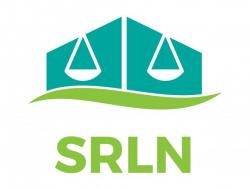
SRLN Brief: Memo on Model Code of Judicial Conduct 2.2 Revisions (SRLN 2012)
This memorandum lays out ways that states can develop state-specific comment language for their judicial codes. The memo reflects recent research, as well as recent state developments as of date of publishing. Judges Judicial Ethics United States SRLN Mem ...
Presentation: Legal Information and Legal Advice: The Hard Situations (Greacen 2010)
Presentation on the distinction between legal information and legal advice given by John M. Greacen at the 2010 California Conference On Self-Represented Litigants April 29-30, 2010. Clerk, Self-Help Center Staff, and Librarian Ethics Managing a Self-He ...
Report: NCSC Judicial Conduct Reporter (Gray 2014)
This issue of the Judicial Conduct Reporter includes an indepth look at how states are addressing the ethics issues posed by self-represented litigants, including a review of case law and Judicial Code of Ethics 2.2. 2.2 Judges Reports Judicial Ethics Uni ...
Webinar: Distinguishing Legal Information from Legal Advice (Greacen 2007)
This webinar is geared toward the court clerk environment and includes discussions on the importance of this topic / why we should care; problems with a vague standard; standards that don't work; principles upon which to build a sound policy; ethical ...
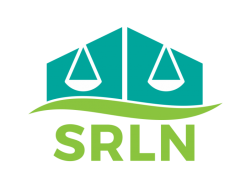
SRLN Brief: Law Library Ethics
The following are resources on law library ethics: American Association of Law Libraries (AALL) Ethical Principles & AALL UPL Toolkit The American Association of Law Libraries (AALL) Ethical Principles make a statement about law librarians’ duty to av ...
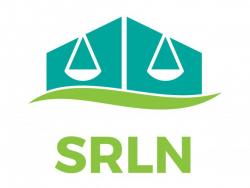
SRLN Brief: Procedural Fairness / Procedural Justice (SRLN 2015)
Research has shown that when defendants and litigants perceive the court process to be fair, they are more likely to comply with court orders and follow the law in the future—regardless of whether they “win” or “lose” their case. This is called procedural ...
Guide: Delaware’s Judicial Guidelines for Civil Hearings Involving Self-Represented Litigants (Delaware 2011)
The Delaware Supreme Court adopted these guidelines, effective May 11, 2011, designed to address concerns that Judicial Officers may have regarding balancing self-represented litigants’ perceptions of procedural fairness while maintaining neutrality in th ...
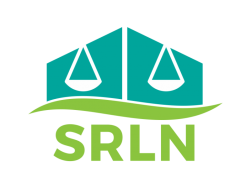
Weblinks: Language Access Bench Cards (Multiple States 2015)
As courts develop language access policies, many are developing bench card to standardize bench officer protocols. Examples of a few follow: Minnesota Bench Card for Courtroom Interpreting Minnesota Bench Card for Video Remote Interpreting in the Courtroo ...
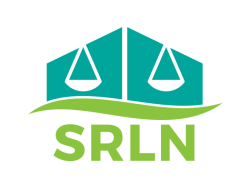
Webinar: Judicial Management of Self Represented Cases (SRLN 2006)
This webinar, which took place on June 14, 2006, discussed different techniques for managing cases involving self-represented litigants. California Judge Laurie Zelon and Minnesota Judge Daniel Mabley led this webinar. The webinar presentation can be down ...
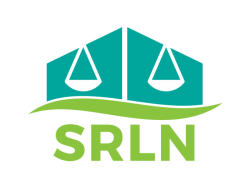
Article: Saving Courtroom Time: Techniques for Judges in Self-Represented Cases (Juhas, McKnight, Zelon, Zorza 2009, rev. 2015)
This article discusses 15 techniques that can increase courtroom efficiency when working with self-represented cases, and summarizes many of the practices suggested in the Judicial Curriculum (srln.org). Recommended Citation: Mark Juhas, Maureen McKnight, ...